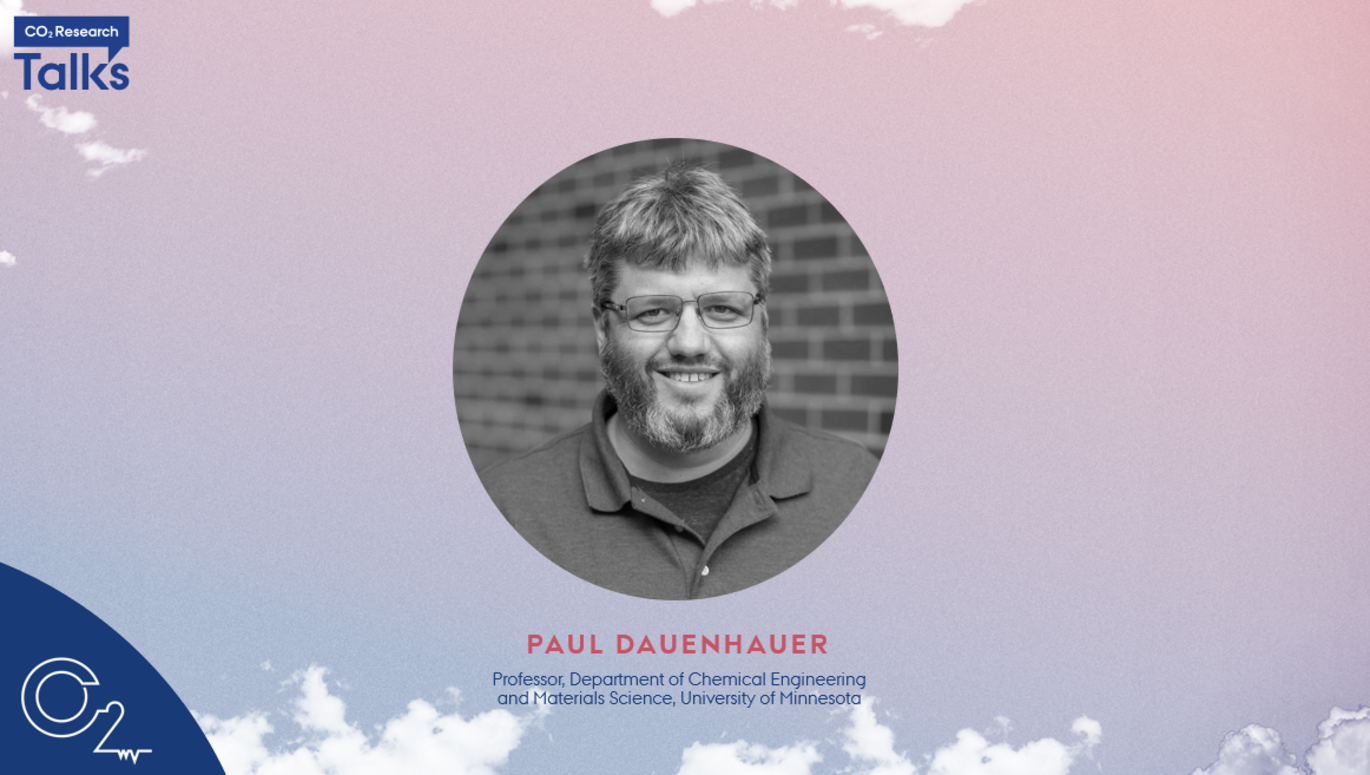CORC CO₂ Research Talk: Paul Dauenhauer
On December 13th at 16:00 CET this year's last CORC CO₂ Research Talks will take place. We have the great pleasure of presenting Professor Paul Dauenhauer from the University of Minnesota. Paul Dauenhauer is a full professor at the Department of Chemical Engineering and Materials Science.

Info about event
Time
Location
Online
Organizer
Professor Paul Dauenhauer's research group focuses on the fundamental reaction engineering and catalysis technology necessary to produce fuels, chemicals and products from carbonaceous feedstocks. Research focused on the utilization of novel inorganic catalysts for transformation of organic feedstocks including shale, biomass and natural gas will permit the efficient and economical production of liquid fuels, polymers and chemicals. Novel research techniques focusing on advanced kinetic measurements, imaging, and chemical characterization provide state-of-the-art knowledge on molecular-level rearrangement at catalyst surfaces and unprecedented capability for utilizing carbon-based resources.
Engineering sustainable energy technology remains the key challenge of the 21st century. Utilization of alternative energy sources including biomass requires fundamental understanding of catalytic reaction chemistry and associated transport phenomena. New feed stocks are predominately porous solids (e.g. shale, lignocellulosic biomass) resulting in both heat and mass transfer limitations inside reacting particles. Additionally, alternative feed streams to refineries are complicated by being over-functionalized (biomass) or over-oxidized (bitumen/kerogen). The research group addresses the catalysis and reaction engineering challenges associated with these renewable and emerging carbonaceous feed stocks for manufacturing the fuels and chemicals of tomorrow. Invention of new experimental techniques combined with novel catalytic and separation materials allow for development of the next generation of energy technology based on detailed chemical understanding.
The group focuses on reacting systems across length scales from catalytic active site, to particle, and reactor allows for utilization of fundamental insight within industrial applications and substantial opportunity for collaboration with industry
